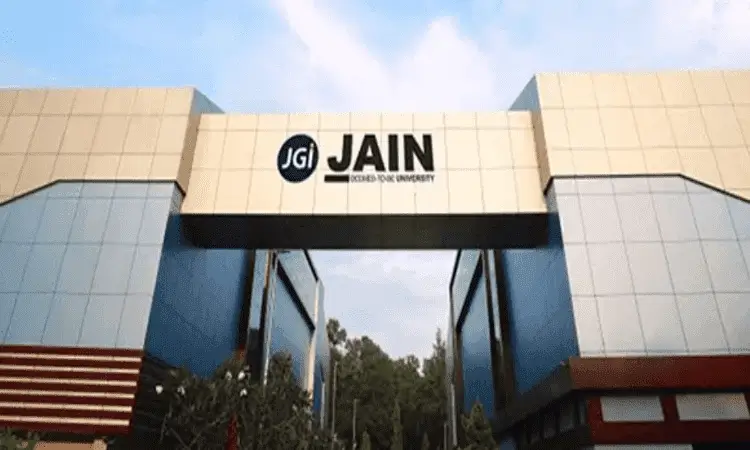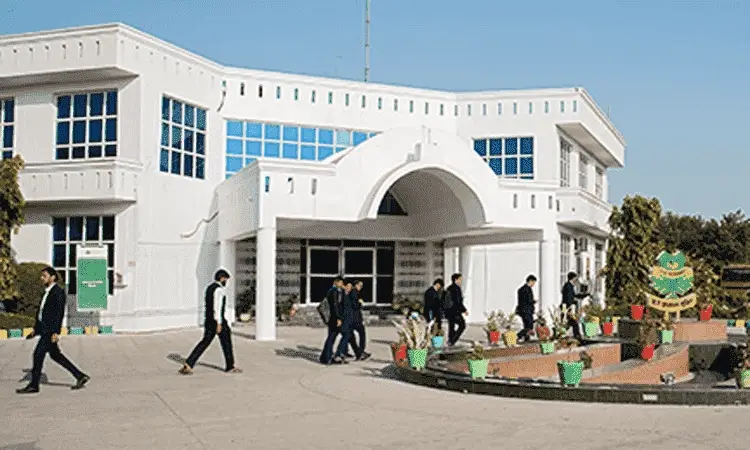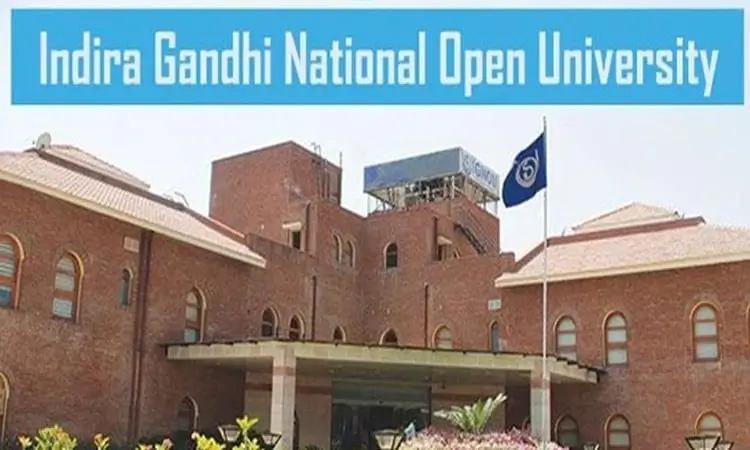Course Details of Distance MBA in Energy Management
The world’s demand for energy is growing rapidly, but so is the need for smarter, cleaner, and more sustainable ways to produce and use it. As the challenges of climate change and resource depletion become more pressing, the energy sector is at a crucial crossroads. If you are passionate about making a difference in this field, pursuing a Distance MBA in Energy Management could be your path to contributing meaningfully to the global energy challenge. MBA in Energy Management focuses on teaching students about the energy and power sector during changing realities in countries around the world. The main subjects of the distance MBA in Energy Management are renewable energy, energy audit project management, and energy sustainability. Energy Management in Commercial Buildings, Energy Economics, Organization Behavior, Power Trading, and Strategic Management. After completing the program, graduates can pursue jobs like Energy manager, Sustainability consultant, Energy auditor, Energy trader, Energy market reporter, etc. The salaries of distance MBA in Energy Management passouts range from 3 to 4 LPA, considering the degree from a decent business school with relevant experience and the required skills with specialization.
-
Course Duration
2 Years
-
Eligibility Criteria
Graduation
-
Admission Process
Aptitude Test
-
Course Fee
INR 1 to 4 Lakhs
-
Average Salary
INR 6.7 Lakhs
What Why When
Distance MBA in Energy Management Admission Process
How NEEV Helps in the Admission Process
Whether you’re aiming to work in renewable energy, energy consulting, or any other area within this vital industry, a distance MBA in Energy Management offers the flexibility to advance your career while making a significant impact. By choosing this path, you’ll be playing a key role in shaping the future of energy, helping to build a cleaner, more sustainable world for generations to come. NEEV Education makes the admission process for Distance MBA in Energy Management effortless by streamlining requirements, offering personalized counseling, and assisting with applications. They provide comprehensive support for entrance exam preparation, fee payments, and financial guidance, ensuring a smooth and stress-free start to your academic journey. We assist you in your admission process in the following ways-
Step 1: Sign up
Login to the admission portal by using your credentials shared on registered email id or you can directly login by entering an OTP received on the registered mobile number.
Step 2: Application Form
The next step is filling out all the details in the application form such as personal details, educational qualification and other details as required by the University.
Step 3: Documentation
Upload all the scanned documents, including high school, intermediate, and Graduation Mark sheets along with the Aadhar card and ABC (Academic Bank Credits) ID.
Step 4: Fee Submission
To finish the application, submit the academic fees online through debit, credit card, Net banking, UPI or you may also opt for a finance option. Interest-free Loan options are also available in which you can pay your fees in easy EMIs.
Step 5: Verification & Confirmation
The University will then verify your documents and send you a confirmation mail on your admission to the distance MBA program along with the login credentials to access your learning management system (LMS).
Distance MBA in Energy Management Eligibility Criteria
To be eligible for a Distance MBA in Energy Management programme, you typically need:
Distance MBA in Energy Management Entrance Exam
Many institutions offering distance MBA programmes in energy management require applicants to take an entrance exam to assess their aptitude and readiness for the program. Common entrance exams include the CAT, MAT, CMAT, XAT, and SNAP. Each institution sets its own cut-off scores, so be sure to research the specific requirements of the programme you're interested in.
| Distance MBA in Energy Management Exams | Distance MBA in Energy Management Exam Dates |
|---|---|
| CAT | Nov’25 |
| SNAP | Dec '25 |
| XAT | Jan '25 |
| MAT |
|
| CMAT | May '25 |

CAT Cut-Off Marks for Distance MBA in Energy Management
To get into a distance MBA programme in business analytics, you need to get a certain score on the CAT exam (or a similar test). The minimum score you need (the cut-off mark) changes depending on how popular the school is, how competitive the programme is, and how many people are applying. Each school will tell you what their specific cut-off mark is.
CAT Cutoff for Distance MBA in Energy Management IIM Admission
| IIM Colleges | CAT Cutoff (Percentile) |
|---|---|
| IIM Ahmedabad | 99-100 |
| IIM Bangalore | 99-100 |
| IIM Calcutta | 99 |
| IIM Lucknow | 97-98 |
| IIM Indore | 97-98 |
| IIM Amritsar | 95-96 |
| IIM Raipur | 94-95 |
| IIM Rohtak | 92-94 |
| IIM Udaipur | 92-94 |
| Top MBA Colleges | CAT Cutoff in Percent |
|---|---|
| IMT, Ghaziabad | 95-97 |
| FMS, University of Delhi | 98-99 |
| IIFT Delhi | 95-99 |
| SPJIMR, Mumbai | 95-99 |
| MDI, Gurgaon | 97-99 |
| XIM, Bhubaneshwar | 91 |
| TAPMI, Manipal | 80 |
| FORE, New Delhi | 85 |
Popular Colleges of Distance MBA in Energy Management
If you're looking for a reputable institution to pursue your distance MBA in energy management, consider these top options in India:
Career Scope for Distance MBA in Energy Management
A Distance MBA in Energy Management opens up diverse career opportunities in a rapidly evolving industry. Graduates can work in sectors like renewable energy, oil and gas, energy consulting, and sustainability. Roles include energy analysts, project managers, sustainability consultants, and business development managers. This program equips you with expertise in energy policies, market dynamics, and sustainable practices, making you valuable to organizations aiming to innovate and adapt to global energy challenges. Whether in public utilities, private firms, or NGOs, a career in energy management allows you to contribute to a more sustainable future while advancing professionally in a field that is critical to the global economy.
Distance MBA in Energy Management Salary in India

| Distance MBA in Energy Management Job Profiles | Job Description (Responsibility) | Average Salary |
|---|---|---|
| Project Manager | Project Manager led solar projects from starti to end, costing and financial modeling of solar projects, P & L responsibility with a team and lead GMR solar businesses. | 12.4 LPA -14.63 LPA |
| Management Trainee | A management trainee is responsible for coordinating with the team, and building relationships with new and existing clients. | 6.08 LPA - 7.5 LPA |
| Sales Engineer | A sales engineer is responsible for the preparation of business proposals, generation, and converting the inquiries into a profitable business. | INR 3.11 LPA - 4.5 LPA |
| Deputy Manager - Power Trading | A Deputy Manager is responsible for overall business development for power trading and preserving a strong relationship with the present clients. | 15.5 LPA - 19.6 LPA |
Top Recruiters for Distance MBA in Energy management

| Top Recruiters Company for Distance MBA in Energy Management |
|---|
|
Reliance Industries Limited
|
|
Essar Oil
|
|
Adani
|
|
Thermax
|
|
Clairn Energy PLC
|
|
ONGC
|
|
Hindustan Petroleum
|
|
Oil India Ltd
|
Placements for Distance MBA in Energy Management
Many universities and institutions offering distance MBA programmes in energy management have dedicated placement cells or career services departments. These departments actively connect students and graduates with potential employers in the energy sector, organising job fairs, networking events, and career counselling sessions.

| Distance MBA in Energy Management Colleges | Distance MBA in Energy Management Average Package |
|---|---|
| IGNOU - Indira Gandhi National Open University | INR 2.7 LPA - INR 7.5 LPA |
| School of Open Learning, University of Delhi | INR 3 LPA - INR 10.5 LPA |
| Symbiosis Centre for Distance Learning, Delhi | INR 3.6 LPA - INR 12.5 LPA |
| ICFAI University – Distance Education | INR 3.2 LPA - INR 14.2 LPA |
Others Specializations for Distance MBA
| Specialisation | Semester-wise Syllabus Details |
|---|---|
| Human Resource (HR) | |
| Finance | |
| Marketing | |
| Operations Management | |
| Information Technology | |
| Business Analytics | |
| Healthcare Management | |
| International Business | |
| Entrepreneurship |
| Specialisation | Semester-wise Syllabus Details |
|---|---|
| Retail Management | |
| Hospitality Management | |
| Project Management | |
| Digital Marketing | |
| Supply Chain Management | |
| Strategic Management | |
| Agri-Managemenet | |
| Energy Management | |
| Fintech | |
Top Reviews from Distance MBA Students
What our Students Saying!FAQ’s of Distance MBA Course in Energy Management
-
What is the scope of a distance MBA in Energy management?
This field offers diverse career paths in various sectors, including renewable energy, oil and gas, consulting, government, and more.
-
What does a Distance MBA in Energy Management graduate typically do?
Graduates of this programme may analyse energy markets to identify investment opportunities, develop strategies to reduce energy consumption in businesses, manage large-scale energy projects like wind farms or solar installations, etc.
-
Is a distance MBA in energy management worth it?
Absolutely! This programme opens doors to diverse and fulfilling career paths. Moreover, the flexibility of distance learning allows you to continue working and earning while you study.
-
Can I work while doing a distance MBA in energy management?
Yes, absolutely! The programme is designed to accommodate working professionals, offering flexible schedules, online learning platforms, and self-paced study options. You can typically access course materials, lectures, and assignments online.
-
What skills do I need to succeed in a distance MBA in Energy Management programme?
To thrive in this programme, you should have a strong foundation in quantitative and analytical skills. Excellent communication and problem-solving skills are also essential, as you'll be interacting with diverse stakeholders and addressing complex energy challenges.
-
What are some emerging trends in the energy management field that I should be aware of?
Some key trends to watch include The rise of renewable energy, Energy storage technologies, Digitalization and automation, Decentralisation of energy production, Increased focus on energy efficiency, etc.


























